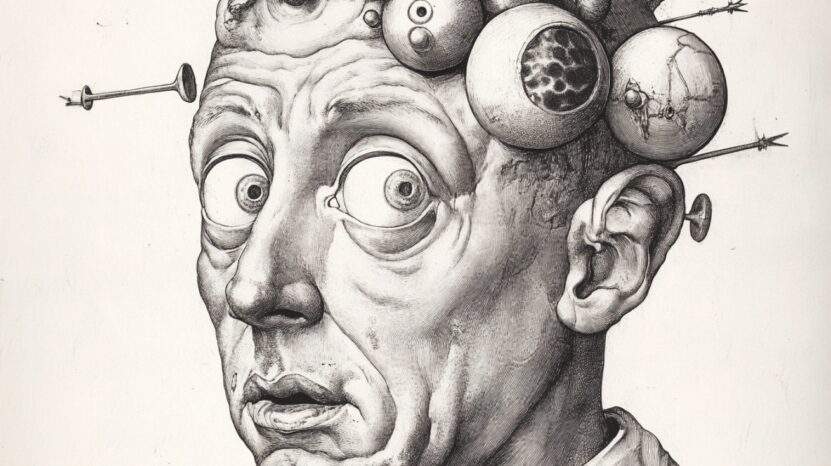
Share Post:
IQ has long been used as a shorthand for measuring cognitive ability. Online IQ tests tap into curiosity and ego, offering fast results with a single click.
Instant gratification often wins over skepticism, especially when numbers feel flattering. Still, professional evaluations demand rigorous standards, while internet quizzes prioritize accessibility and entertainment.
The purpose here is to weigh how those instant scores measure up to more scientifically grounded assessments.
Table of Contents
ToggleWhat Does the Score Mean?
IQ scores are intended to reflect specific types of cognitive ability rather than knowledge.
Standardized so that 100 is the average, the system ensures most people fall within the range of 85 to 115. That middle section includes the vast majority of the population.
Scores above 130 are often categorized in the “very superior” range, sometimes informally referred to as “gifted,” although scientific language has shifted away from older labels.
Many confuse IQ scores with academic performance or education level. A person with multiple degrees might not score high on an IQ test if they struggle with rapid problem-solving or abstract reasoning. Conversely, someone with little formal schooling could achieve a high score due to efficient pattern recognition and logical thinking.
What the score reflects is the brain’s ability to manage novel problems, not how much one knows.
IQ tests evaluate areas like pattern detection, memory, and spatial reasoning. These abilities contribute to problem-solving and learning speed but don’t reflect personality, emotional intelligence, or creativity.

- Abstract reasoning: Solving unfamiliar problems using logic and deduction.
- Pattern recognition: Identifying relationships or recurring structures.
- Logical analysis: Understanding systems and sequences in a structured way.
- Processing speed: Completing mental tasks quickly and accurately.
- Working memory: Holding and manipulating information in short-term memory.
Each test may emphasize different areas, but most aim to cover a spread of these categories to balance results. That variety ensures no single strength inflates the total score unfairly.
Context, Classification, and Misinterpretation
Labels once tied to IQ scores, such as “genius,” have largely fallen out of favor in psychological literature due to their imprecision. Current classifications avoid grandiose terms, instead using measurable categories like “average,” “high average,” “superior,” and “very superior.”
Despite evolving terminology, casual conversations and pop culture still lean on the outdated labels. “Genius” remains a buzzword, used loosely to describe anything impressive. Scientific communities, however, now emphasize nuance and avoid sweeping generalizations based on a single number.
IQ tests are often misused or misrepresented outside controlled environments. People may take casual results too seriously, using them to affirm superiority or internalize inadequacy. That can lead to inflated egos or unnecessary self-doubt.
- Test quality matters: Not all IQ tests are equal—scientifically developed assessments are far more reliable.
- Environmental factors influence performance: Fatigue, stress, or distractions can impact results.
- A single score doesn’t capture the full picture: Emotional resilience, creativity, and interpersonal skills are all critical aspects of human capability not reflected in IQ.
- Self-perception can be distorted: Overvaluing the number may skew how people view their worth or intelligence.
IQ is a useful tool, not a life-defining label. Scores provide a glimpse into how the brain handles certain tasks but should never be used to reduce people to a single metric.
The Gold Standard

Scientifically recognized IQ assessments such as the Stanford-Binet Intelligence Scale and the Wechsler Adult Intelligence Scale (WAIS) follow a structured, research-backed design. These assessments are administered in person by licensed psychologists under tightly controlled conditions.
Every part of the testing environment—from lighting to noise levels—is managed to reduce external distractions and ensure the test-taker performs under standardized conditions.
Controlled, Multi-Domain Evaluation
Rather than focusing on a single aspect of cognition, these assessments evaluate a range of abilities. Multiple domains are measured to provide a comprehensive view of an individual’s cognitive function.
A more accurate outcome depends on this broader structure, reducing the chance of skewed scores caused by one strong or weak area.
- Verbal comprehension and reasoning
- Visual-spatial processing
- Working memory
- Quantitative reasoning
- Processing speed
Each of these areas contributes to the overall score while also helping psychologists identify specific cognitive strengths and weaknesses.
When interpreted correctly, results can help in academic planning, disability assessments, or psychological evaluations.

Long-Term Research and Limitations
These tests are not casually thrown together. Years of research, revisions, and field studies shape the final versions. Developers adjust them periodically based on updated population data and new research findings.
Reducing cultural and socioeconomic bias is part of this ongoing process, although no tool is entirely bias-free.
- Ongoing revisions to maintain relevance
- Large-scale validation samples
- Cultural bias minimization
- Standardized scoring procedures
Despite their accuracy, limitations exist. Professional testing often comes with a steep price tag. For individuals without health insurance coverage or academic support, access can be out of reach.
In many cases, people never undergo formal IQ testing unless required for school assessments, mental health evaluations, or specialized placements.
The Rise of Online IQ Tests

Online IQ tests have surged in popularity, filling gaps left by the cost and inaccessibility of formal assessments. Search engines produce thousands of options promising instant scores, detailed breakdowns, and even certificates—all in under 20 minutes. Few, if any, live up to those claims.
The Guardian’s investigation into online IQ testing revealed serious inconsistencies. Results varied drastically across different websites, with some producing inflated numbers regardless of performance. Tests often prioritize speed over accuracy, rewarding rapid guessing rather than thoughtful problem-solving.
Many of these tests are driven by ad revenue. Every additional page view or user click serves a monetization purpose. Scientific validity takes a backseat to user engagement. Graphics, countdown timers, and persuasive language create an illusion of credibility, but the methodology often lacks academic rigor.
A personal experiment shows the gaps clearly. Taking five different tests in one day yielded scores ranging from 98 to 142—an improbable swing. One test asked color-matching questions. Another simply timed how fast the answers came in. No consistency. No transparency.
Without peer-reviewed backing or proper psychometric design, online IQ tests should be seen as entertainment. They offer a fun distraction, not a psychological diagnosis.
Can You Trust an Online Score?
Most online IQ scores should not be taken seriously. A test with unknown authors, unclear scoring algorithms, and ad-driven motives cannot offer meaningful insight into someone’s cognitive ability. Results may be flattering or discouraging, but they hold no scientific weight.
Online tests serve a different purpose, brief amusement, maybe a conversation starter. For those genuinely curious about mental strengths, professional assessment is still the only path to reliable results. Accuracy, controlled testing, and trained oversight are not things that can be replicated in a pop-up quiz.
Trust should rest in verified tools, not clickbait. Online scores may feel real, but feelings don’t equal facts.
Related Posts:
- The Truth About Online University Programs - Can You…
- Top 10 Free Online IQ Tests You Can Take Right Now
- Building Your Online Course - Which Platform is…
- What Are the Limits of Learning Online? Can You…
- Is Online Learning as Effective as Traditional Education?
- Is That School Information Legit? Why You Need to Be…












